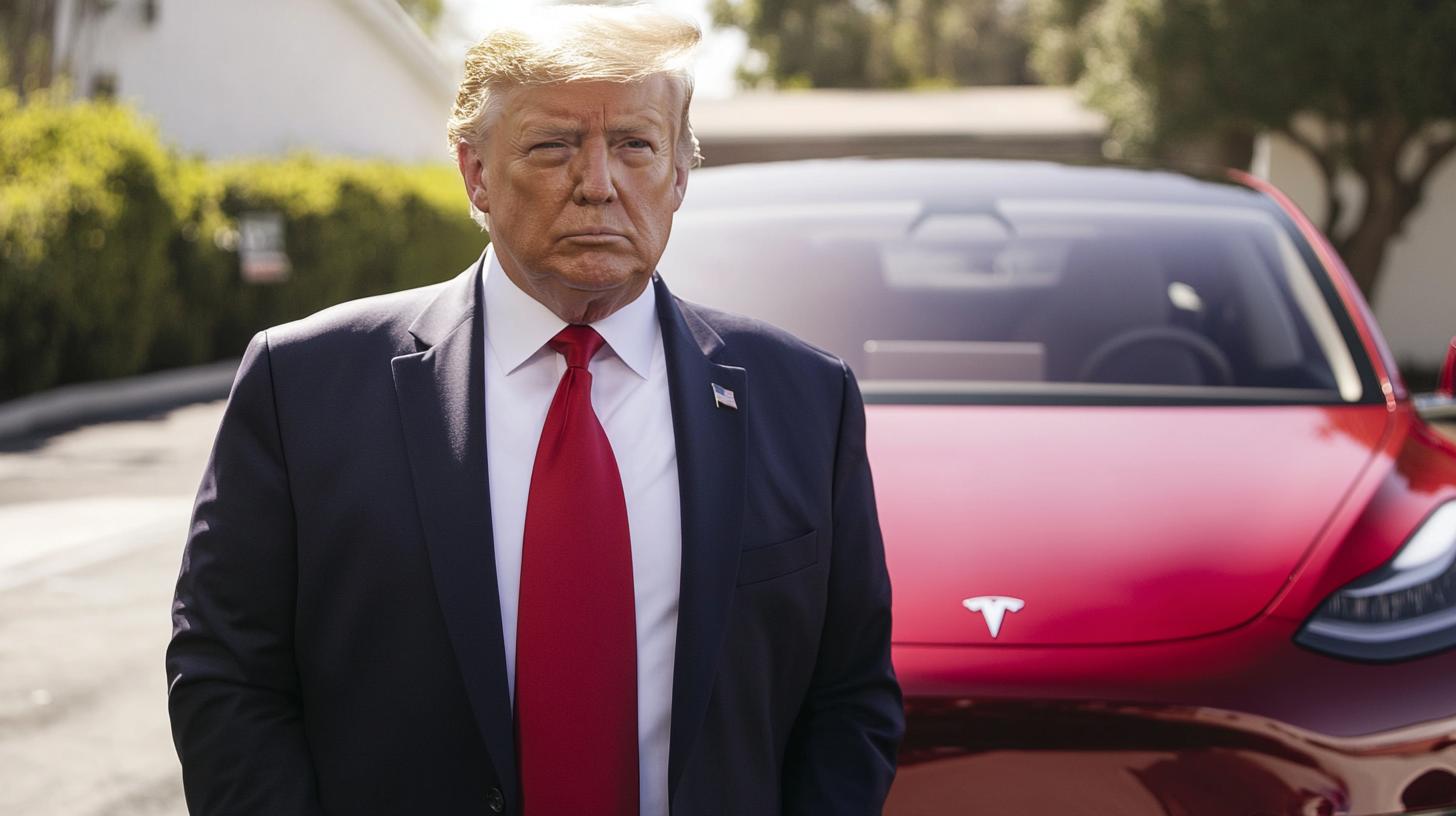Potential Shake-Up Brewing in Electric Vehicle Incentives
The $7,500 federal tax credit for electric vehicles, a cornerstone of the Inflation Reduction Act, is under scrutiny as President-elect Donald Trump’s transition team reportedly aims to eliminate it. According to sources cited by Reuters, this initiative is a key facet of the broader tax reform strategy.
TechCrunch verified this development, citing confirmations from various insiders. The repercussions of such a move are already being felt in the stock market. Automakers like Tesla and Rivian faced significant drops in share value, with the latter experiencing a considerable decline exceeding 12%.
Despite the potential setback for some electric vehicle manufacturers, Tesla’s CEO, Elon Musk, has expressed a rather unconventional stance. As both a Trump ally and a vocal industry leader, Musk has reiterated his support for removing government subsidies altogether, suggesting such changes could paradoxically benefit Tesla in the long run.
Congressional Approval Needed for Tax Credit Changes
It’s crucial to note that revoking the EV tax credit is not a straightforward process. Any alteration requires Congressional approval. The most viable approach would be to incorporate changes into the upcoming tax reform legislation scheduled for review in spring.
Meanwhile, the administration might employ the Treasury Department to impose stricter requirements. The existing tax credit includes provisions intended to bolster domestic production and lessen dependence on imports, particularly from China. Current rules demand U.S.-based assembly and stringent sourcing of critical minerals, with escalating percentages mandated through 2027. As this debate unfolds, stakeholders are keenly observing the potential impacts on the EV industry’s future.
The Ripple Effect: How Changes in EV Tax Credits Could Transform Industry Dynamics
The ongoing discussion around the U.S. federal tax credit for electric vehicles (EVs) has the potential to create a significant ripple effect in the industry, impacting everything from consumer choices to technological innovation. As the $7,500 incentive faces possible elimination, new dimensions and controversies have emerged regarding how such changes could influence humanity’s path toward sustainable technologies. Here’s what you need to know about the untold stories in this dynamic landscape.
Driving Innovation Through Market Forces
While the removal of the EV tax credit could initially seem like a setback, it may also stimulate technological innovation and market competition. Without a government buffer, automakers are likely motivated to produce more cost-effective and efficient EVs to remain competitive. This could accelerate advancements in battery technology and drive down overall costs, making electric vehicles more accessible to the general public over time.
Environmental and Economic Balancing Act
A significant point of contention in the debate is the environmental impact. The tax credit has been a vital tool in promoting eco-friendly transportation options. Eliminating it could slow the adoption of EVs, potentially leading to prolonged reliance on fossil-fuel-powered vehicles. This raises questions about how the U.S. will meet its climate goals without substantial incentives for cleaner technology.
On the flip side, the shift away from subsidies could reduce government expenditure and reallocate funds to other crucial areas such as public transportation infrastructure or renewable energy projects.
Global Competition and National Security
One intriguing advantage of tightening EV policies through stricter sourcing requirements is the bolstering of domestic production. By focusing on U.S.-based assembly and strengthening mineral sourcing requirements, the nation can reduce dependency on international supply chains, particularly critical when geopolitical tensions with major exporters like China are considered.
This shift could enhance national security and foster job growth, yet it might also lead to increased production costs, potentially stifling the speed at which EVs are adopted domestically.
Will Consumers Pay the Price?
One of the biggest questions surrounding this debate is how consumers will react. Without the financial allure of the tax credit, potential EV buyers might hesitate, leading to slower market growth. Yet, could this challenge pave the way for creative financing solutions or new purchasing models in the auto industry, such as subscription-based services?
Are We Ready for a Paradigm Shift?
As the EV industry grapples with potential regulatory shifts, it might be time to consider whether this is an opportunity for a paradigm shift in how vehicles are marketed and sold. Could automakers leverage this situation to innovate not only in technology but also in the way they connect with consumers?
In conclusion, while the removal of the EV tax credit poses significant challenges, it also opens up a multiplicity of pathways for innovation and market adaptation. Whether these changes will propel humanity toward an era of sustainable technology or delay critical climate goals remains to be seen.
For further insights into electric vehicle developments, visit Tesla, or explore reports from TechCrunch.







